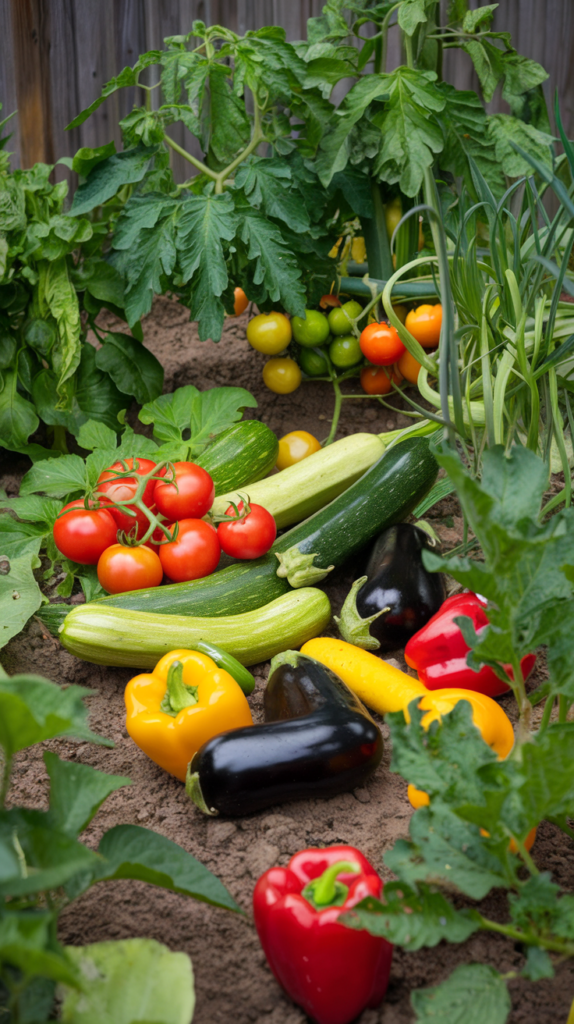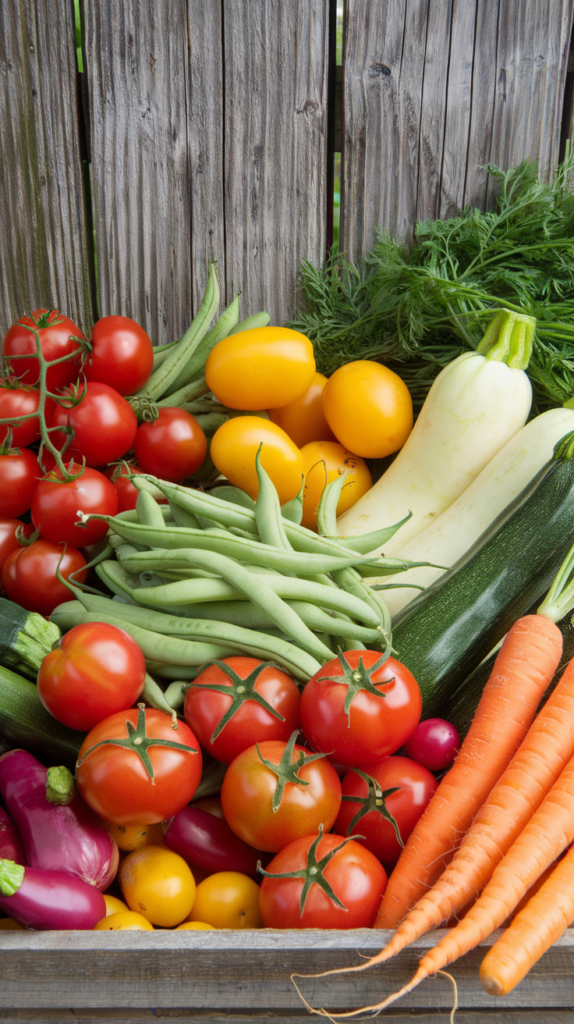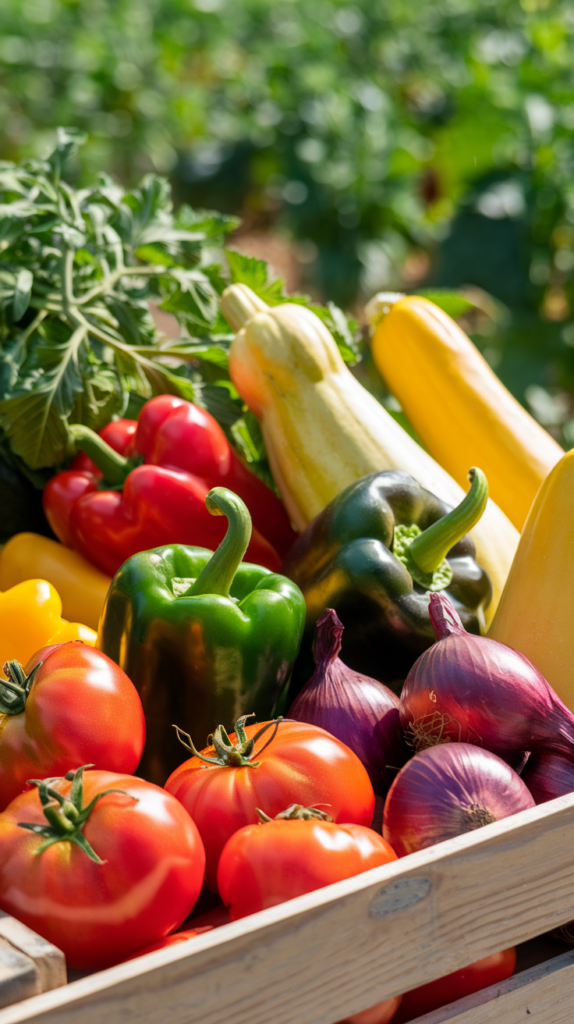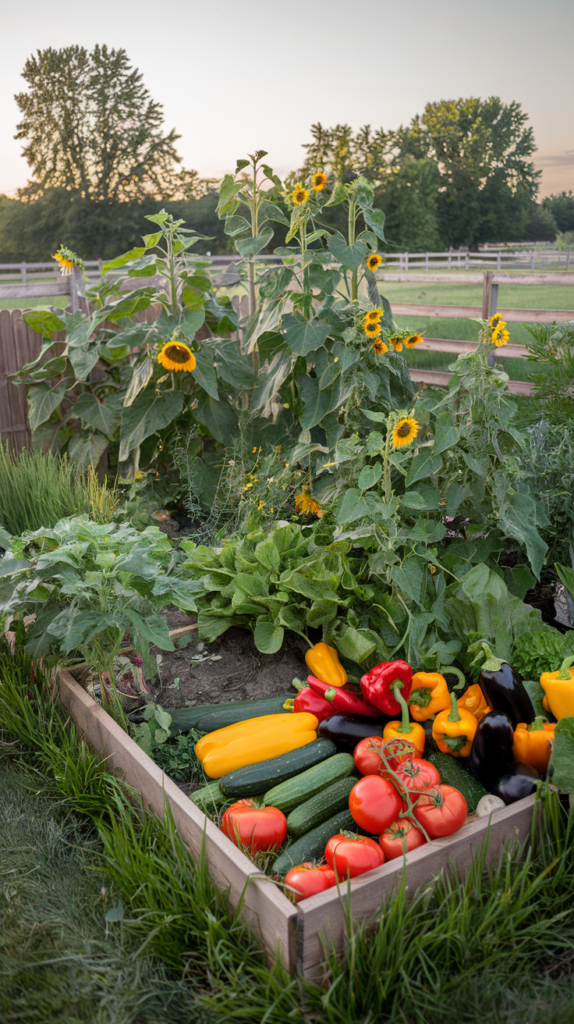9 Summer Vegetables to Grow for a Bountiful Harvest
When it comes to growing summer vegetables, the possibilities are vast and rewarding. The summer months provide ideal conditions for many plants, allowing you to enjoy a bountiful harvest of fresh produce. In this article, we’ll explore 9 summer vegetables to grow that are not only easy to cultivate but also offer delicious flavors and nutritional benefits.
1. Tomatoes
Why Grow Tomatoes?
Tomatoes are often regarded as the best summer vegetables to grow due to their versatility and high yield. They thrive in warm weather and can be grown in containers or garden beds.
| Type | Best Varieties | Days to Maturity |
|---|---|---|
| Indeterminate | ‘Brandywine’, ‘Cherokee Purple’ | 75-90 |
| Determinate | ‘Early Girl’, ‘Celebrity’ | 55-75 |
Growing Tips
- Soil: Well-draining, nutrient-rich soil is ideal.
- Sunlight: At least 6-8 hours of direct sunlight daily.
- Watering: Keep the soil consistently moist but not soggy.
2. Cucumbers
Benefits of Growing Cucumbers
Cucumbers are one of the easy summer vegetables to grow. They require minimal care and produce abundant fruit.
| Variety | Best for | Days to Maturity |
|---|---|---|
| Slicing | ‘Marketmore 76’ | 50-60 |
| Pickling | ‘Boston Pickling’ | 50-55 |
Growing Tips
- Soil: Fertile soil with good drainage.
- Support: Use trellises to save space and promote air circulation.
- Watering: Regular watering is crucial during dry spells.
3. Bell Peppers
The Appeal of Bell Peppers
Bell peppers add a colorful touch to your summer garden and are rich in vitamins A and C. They are among the best vegetables to grow in summer.
| Color | Best Varieties | Days to Maturity |
|---|---|---|
| Green | ‘California Wonder’ | 70-80 |
| Red | ‘Red Knight’ | 80-90 |
| Yellow | ‘Golden California’ | 70-80 |
Growing Tips
- Soil: Well-drained, loamy soil enriched with compost.
- Temperature: Thrives in temperatures between 70°F and 85°F.
- Spacing: Space plants 18-24 inches apart for optimal growth.
4. Zucchini
Why Choose Zucchini?
Zucchini is one of the best summer vegetables to grow due to its prolific nature and versatility in cooking. It’s also a great choice for those looking for vegetables to grow in summer.
| Variety | Best Use | Days to Maturity |
|---|---|---|
| Green | ‘Black Beauty’ | 45-55 |
| Yellow | ‘Golden Zucchini’ | 50-60 |
Growing Tips
- Soil: Fertile soil with plenty of organic matter.
- Watering: Water consistently, especially during fruit development.
- Harvesting: Pick zucchini when they are 6-8 inches long for the best flavor.
5. Beans
The Versatility of Beans
Beans, whether pole or bush varieties, are among the summer vegetables to grow that fix nitrogen in the soil, improving its quality.
| Type | Best Varieties | Days to Maturity |
|---|---|---|
| Pole | ‘Blue Lake’ | 60-70 |
| Bush | ‘Provider’ | 50-60 |
Growing Tips
- Soil: Well-draining soil enriched with compost.
- Sunlight: Requires full sun for at least 6 hours a day.
- Support: Use poles or trellises for pole beans.
6. Eggplants
Why Grow Eggplants?
Eggplants, or aubergines, are a delicious addition to summer dishes and are among the best summer vegetables to grow for their unique flavor and texture.
| Variety | Best Use | Days to Maturity |
|---|---|---|
| Italian | ‘Black Beauty’ | 70-80 |
| Asian | ‘Japanese Eggplant’ | 60-70 |
Growing Tips
- Soil: Fertile, well-draining soil with a pH of 5.5-6.5.
- Sunlight: Needs full sun, ideally 6-8 hours per day.
- Watering: Regular watering to keep soil moist, especially during fruiting.
7. Squash
The Benefits of Growing Squash
Summer squash is known for its rapid growth and high yield, making it one of the vegetables to grow in late summer.
| Type | Best Varieties | Days to Maturity |
|---|---|---|
| Yellow Squash | ‘Crookneck’ | 50-60 |
| Patty Pan | ‘Patty Pan Squash’ | 55-65 |
Growing Tips
- Soil: Rich, well-draining soil with plenty of organic matter.
- Sunlight: Prefers full sun with ample room for spreading.
- Harvesting: Pick when fruits are small and tender for the best taste.
8. Corn
The Allure of Corn
Sweet corn is a summer staple that is incredibly rewarding to grow, providing a unique and delicious harvest.
| Variety | Best Use | Days to Maturity |
|---|---|---|
| Sweet | ‘Silver Queen’ | 75-85 |
| Super Sweet | ‘Honey Select’ | 80-90 |
Growing Tips
- Soil: Well-draining, fertile soil rich in organic matter.
- Spacing: Plant in blocks rather than rows for better pollination.
- Watering: Regular watering is essential during the growing season.
9. Okra
Why Consider Okra?
Okra is a heat-loving vegetable that thrives in summer, making it a great addition to your garden.
| Variety | Best Use | Days to Maturity |
|---|---|---|
| Green | ‘Clemson Spineless’ | 50-60 |
| Red | ‘Red Burgundy’ | 55-65 |
Growing Tips
- Soil: Prefers well-draining, fertile soil with good organic content.
- Sunlight: Requires full sun for optimal growth.
- Harvesting: Pick okra pods when they are 2-4 inches long for the best texture.
Growing Vegetables in Summer: General Tips
Soil Preparation
Before planting any vegetables to grow in summer, ensure your soil is rich in nutrients and well-drained. Adding compost can significantly improve soil health.
Watering Practices
Consistent watering is crucial during hot summer months. Drip irrigation or soaker hoses can be effective in keeping soil moist without waterlogging the plants.
Pest Management
During the summer, pests can become a nuisance. Implementing companion planting or natural pest repellents can help protect your crops.
Fertilization
Applying a balanced fertilizer at the start of the growing season can boost plant growth. Organic options like fish emulsion or seaweed extracts are great choices.
Sunlight Requirements
Most summer vegetables require full sun (at least 6 hours a day). Position your garden accordingly to maximize sunlight exposure.



